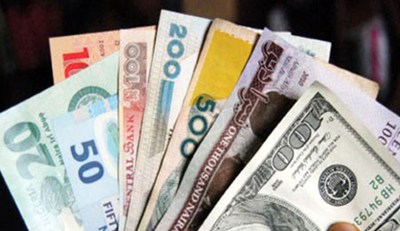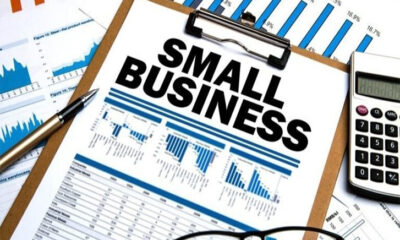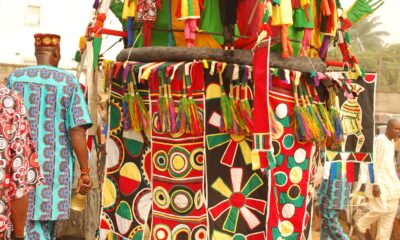Naira, yesterday, appreciated by 3.52 per cent to close at N315.93 to a dollar at the interbank market,prompting calls for foreign investors to take advantage of the appreciation.
However, the naira suffered a loss in value as it depreciated at the parallel market to trade at N402 per dollar, weaker than N397 it traded at its previous session as dollar shortages gripped the official market.
The naira, which hit fresh record low since the central bank floated the currency on the official inter-bank market in June, first touched N400 on the black market this month. On the inter-bank market yesterday, no trade was posted until three minutes before the end of the session, when the central bank which has been reducing its dollar sales, intervened, traders said.
Only three deals worth $0.75 million were traded at 305.50 per dollar, a level the market has closed at since Monday. Specifically, according to Bloomberg, in the last two weeks, Exotix Partners LLP and Standard Bank Group Ltd. have told clients; most of who fled after the country started imposing capital controls from late 2014, that they should start buying naira assets again.
The naira which has been the worst-performing currency this year among more than 150 globally has depreciated 37 percent against the dollar since the Central Bank of Nigeria, CBN abandoned its peg on June 20, while bond yields have jumped to more than 20 percent. The naira strengthened 4.6 percent to 315 per dollar on Tuesday after falling to a record 350.25 on August 19, 2016. “The cheap naira is attracting foreign investors,” said Lutz Roehmeyer, a money manager at Landesbank Berlin Investment, which oversees about $12 billion of assets. “At 325 per dollar, the naira is too weak” and Landesbank anticipates a rebound, he said. Roehmeyer’s funds have doubled their holdings of naira debt, albeit in the form of bonds issued by the World Bank’s International Finance Corp. rather than the Nigerian government, to the equivalent of around $9.2 million this month, he said.
The CBN fixed the currency in February 2015 at 197-199 per dollar to stop it plunging amid the decline in the price of oil, on which Nigeria depends for 90 percent of exports and the bulk of government revenue. He relented after 16 months as the country stumbled toward a recession and foreign reserves fell to their lowest level in 11 years. The naira has now weakened more than any other major oil currency since mid-2014, when crude prices started retreating. It’s lost almost half its value against the dollar in that period, compared with 46 percent for Kazakhstan’s tenge and 35 percent for the Colombian peso.
That makes it a good time to buy Nigerian one-year Treasury bills with yields of about 22 percent, Stuart Culverhouse, chief economist at Exotix in London, wrote in an Aug. 9 note. The potential return is more than 33 percent if the naira strengthens to its fair value of 290 against the greenback, he said.
Source: vanguard.ng

 FAB FRESH7 days ago
FAB FRESH7 days ago
 ENTERTAINMENT7 days ago
ENTERTAINMENT7 days ago
 MUSIC6 days ago
MUSIC6 days ago
 ENTERTAINMENT7 days ago
ENTERTAINMENT7 days ago
 ENTERTAINMENT6 days ago
ENTERTAINMENT6 days ago
 MUSIC5 days ago
MUSIC5 days ago
 LIFESTYLE6 days ago
LIFESTYLE6 days ago
 LIFESTYLE5 days ago
LIFESTYLE5 days ago




































